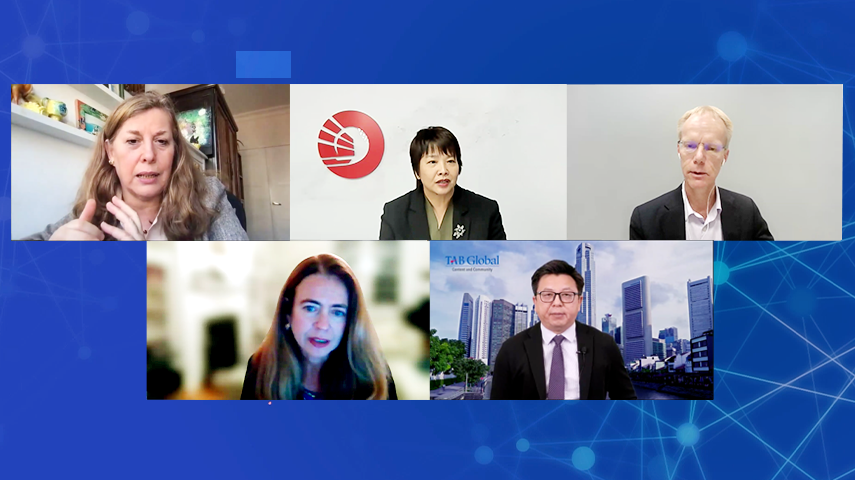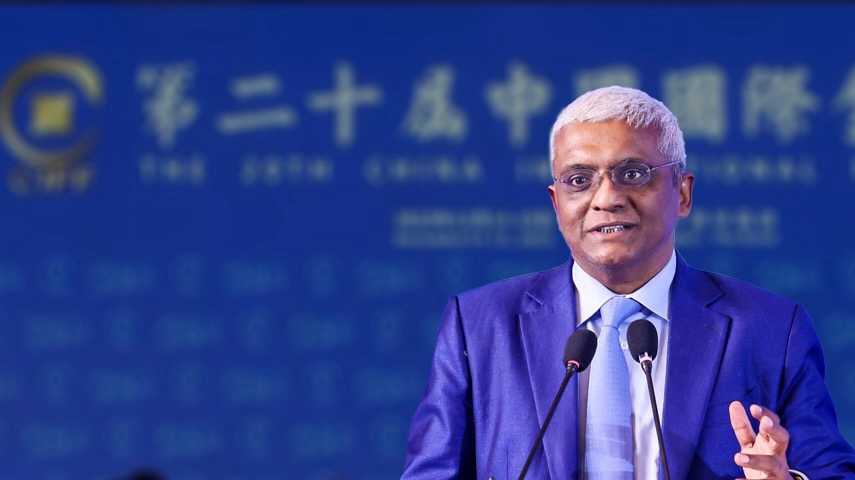The RadioFinance session on the Global Banking Industry Outlook for 2024 provided deep insights into the challenges and opportunities in the banking sector. Leading economists joined the discussion and focused on economic growth prospects, technological advancements, and sustainable finance.
They dissected the prospective banking landscape for the year amid increasing global economic and geopolitical uncertainties, technological disruptions and displacements, and the pivot towards climate change and sustainable development goals. This RadioFinance session was held on 18 January.
Global and regional economic growth prospects
Global economic growth in 2024 is expected to continue to face significant headwinds and the drag of higher interest rates in the fight against inflation. The International Monetary Fund forecasts a third consecutive year of global slowdown to 2.9% in 2024, with a soft landing in major economies with inflation pressures and interest rates anticipated to ease in the second half of the year.
Selena Ling from OCBC highlighted the resilience of the banking sector across economic cycles, commenting that major distress in large banks was notably absent during the pandemic. She offered insights on potential geopolitical fallout, especially relating to the Taiwan election, suggesting that such events often do not lead to immediate drastic changes and are not in the long-term strategic interest of stakeholders.
Louis Kuijs from S&P Global Ratings provided insights on the Asia Pacific banking sector’s preparedness for potential policy shifts and market conditions. He addressed the likely impact from the Bank of Japan’s monetary policy shifts and abandonment of yield-curve control. He highlighted the importance of understanding the central bank’s objectives, particularly its focus on achieving sustainable inflation and wage growth. Kuijs also discussed the importance of focusing on the broader implications of any policy changes, especially the impact on fiscal sustainability and corporate debt levels despite the short-term movements in the financial markets.
Alicia García-Herrero from Natixis commented on the geopolitical decoupling between China and the United States and the West in general, and the former’s reduced contribution to global growth. She posited that China may no longer be the major contributor to global economic growth and development as it had been in the past decade. She suggested a shift in the economic landscape of China, moving from a period of inflation to a phase where disinflation, and potentially deflation, become more prominent concerns. This change is significant given China’s substantial role in the global economy. She highlighted the need for banks to be agile during such geopolitical and economic shifts.
Roberta Gatti from the World Bank discussed the economic growth prospects in the Middle East and North Africa (MENA), noting that despite poorer growth in 2022 and 2023, the region might fare relatively better in 2024. She noted that the slowdown in China’s economic growth and a potential deflation of its economy will have far-reaching consequences on emerging economies, including those in MENA, and stressed the need for diversification and restructuring in the oil and commodity-dependent economies
Harnessing technology for innovation, efficiency and growth
Ling emphasised the role of artificial intelligence (AI) and technology in enhancing banking services. Together with Garcia-Herrero, she stressed the importance of balancing technological innovation with ethical and regulatory considerations.
Kuijs cautioned against the overreliance on powerful emerging technologies like AI, and especially applications that replace human reasoning and decision-making.
Transition through climate change and sustainable finance
Sustainable finance and the banking sector’s role in combating climate change were pivotal themes. Ling discussed the emerging opportunities in green technologies and renewable energy financing, emphasising the growing consumer demand for sustainable banking products.
Gatti concurred, saying that the MENA region would need to adapt to climate change and restructure their economies for a sustainable future.
Kuijs warned about the commercial implications of climate change and environmental, social and governance (ESG) transition, and that the banking industry must take a “hard-nosed” approach, including managing the risk of stranded assets.
García-Herrero discussed the broader implications of geopolitical changes on sustainable finance, emphasising the ongoing adjustments in global economic contributions, particularly from China, and its implications for sustainable finance.
The session highlighted that while economic, technological, and environmental challenges loom large in 2024, they also present significant opportunities for growth and transformation in the global banking sector. The panellists agreed on the importance of agility, innovation, and a strategic approach to sustainable finance in navigating these complex times.
Invited guests include:

Chief Economist, Middle East, and North Africa
World Bank

Chief Economist
Asia Pacific
Natixis

Chief Economist & Global Head, Global Markets Research & Strategy
OCBC

APAC Chief Economist
S&P Global Ratings

President and
Managing Editor,
The Asian Banker
The Asian Banker RadioFinance aims to enhance understanding of the finance industry globally by bringing together thought leaders, industry experts, practitioners and futurists to examine current, critical issues through a discussion facilitated by visual and web-based platforms. Through the use of interactive technology, participants do not have to take time out from their crowded schedules or leave the comfort of their own desks.

In a conversation with Ron Shevlin, a renowned banking thought leader, we delved into how the US banks navigate regulatory challenges amid economic uncertainty and strategic shifts

Greg Palmer, head of strategy and host at Finovate conference series, analyses the developments in the US financial industry, highlighting how intense competition for deposits drives the adoption of fintech among banks, and allows digital…

The RadioFinance session on the Global Banking Industry Outlook for 2024 provided deep insights into the challenges and opportunities in the banking sector. Leading economists joined the discussion and focused on economic growth prospects,…

Emmanuel Daniel, founder, TAB Global, spoke at CIFF about Shanghai's goal of becoming a global financial hub and how many legal systems create a flexible business climate.

Bank Central Asia’s president director, Jahja Setiaatmadja, says that the key drivers of the bank’s success in the Indonesian banking industry are its digital prowess and good relationships with customers. BCA is the highest capitalised…

By continuing to browse this website, you agree to our privacy policy.